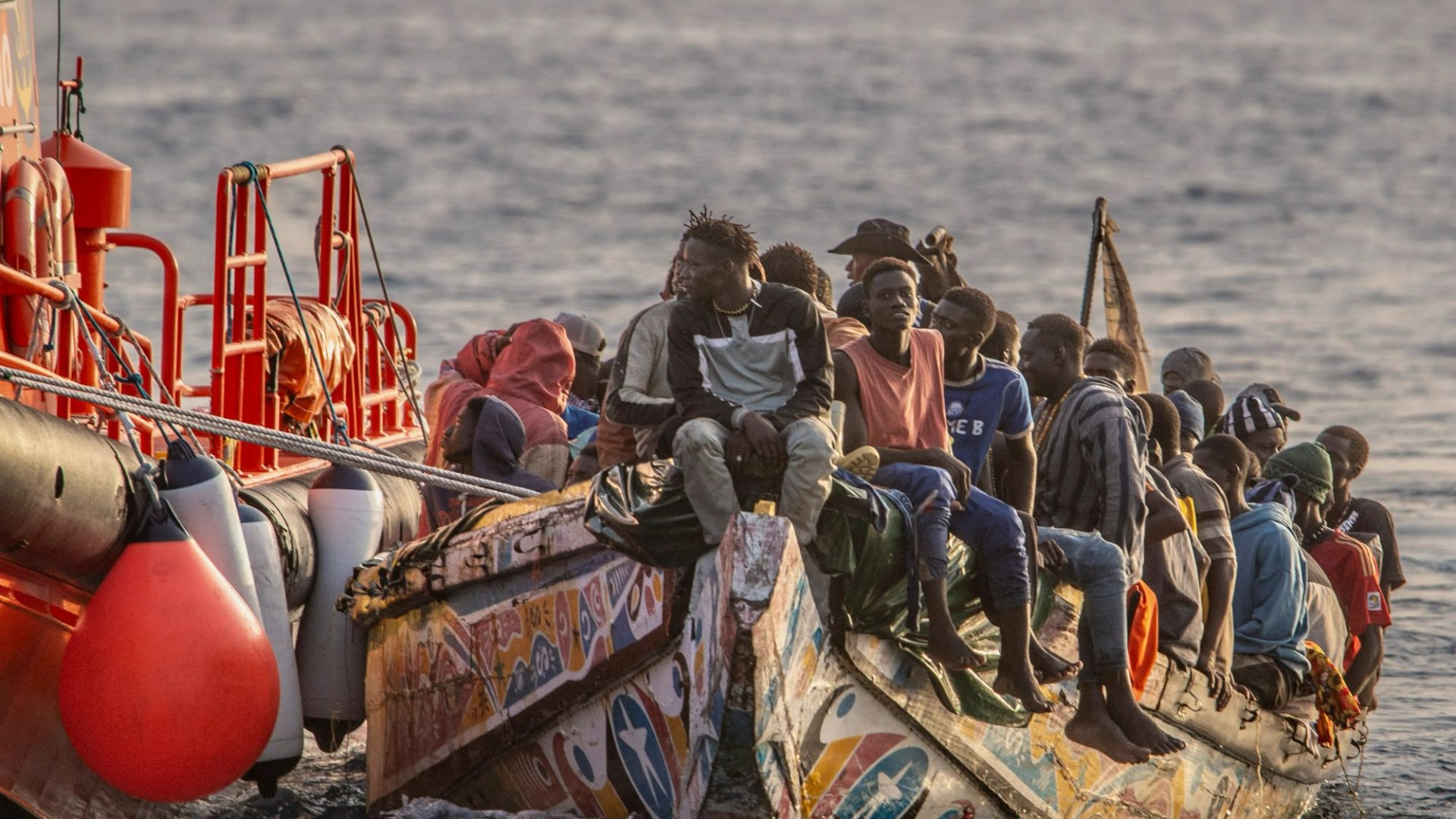World
Canary Islands Officials Demand Emergency Amid Migrant Surge

Officials in the Canary Islands are urgently calling for a state of emergency in response to a significant increase in migrant arrivals. Last year, approximately 47,000 individuals reached Spain via small boats, with the number of unaccompanied minors nearly tripling the islands’ official capacity. As of May 15, 2024, over 10,882 migrants have arrived this year alone, raising serious concerns about the welfare of these vulnerable individuals, particularly children.
The surge in maritime migration from West Africa has dramatically strained local resources. The Canary Islands currently have the capacity to accommodate just 1,737 migrant children, yet reports indicate that 5,017 minors are now residing in the archipelago. In light of these alarming figures, local officials have formally requested that the Spanish government recognize a migration emergency. A decree from Spain’s Council of Ministers was approved last week, allowing the Ministry of Youth and Children to take necessary actions to address the crisis.
Government Response to the Crisis
Canarian President Fernando Clavijo emphasized the urgency of the situation, stating, “There are no longer any excuses to begin this process.” He underscored the need for proper procedures to ensure the safety and well-being of the children arriving on the islands. The government acknowledges that the influx of migrants poses a “security risk” and creates situations that threaten public order, as outlined in a report by Tragsa, which collaborates with the Ministry of Social Security and Migration.
Tragsa’s report notes that since the summer of 2023, the wave of arrivals has reached unprecedented levels. The report asserts that while some infrastructure is in place to manage the crisis, the continued influx requires immediate intervention to avoid catastrophic outcomes.
Despite the escalating situation, migrant arrivals have decreased in 2024 compared to the same period last year. Between January 1 and May 15, 16,586 migrants arrived in 2023, indicating a slight decline in the ongoing crisis. Nationally, Spain has seen a reduction of over 5,500 migrants entering its shores, reflecting broader trends across Europe.
Broader Migration Challenges in Europe
The ongoing crises in the Canary Islands mirror larger migration challenges faced by both the United Kingdom and Europe. The UK has experienced a notable increase in small boat crossings across the English Channel, leading to a significant strain on its asylum system. Currently, over 32,000 asylum seekers are housed in taxpayer-funded hotels, costing the government billions annually. This has sparked outrage among local communities, prompting protests against the housing of asylum seekers in public accommodations.
In response, the UK government is trialing a “one-in, one-out” agreement with France, although this approach has proven controversial. Across Europe, migration policies are tightening, driven by the rise of far-right parties advocating for stricter border controls.
As the Canary Islands confront daily arrivals of migrants, local communities express increasing frustration. Residents of Majorca, Ibiza, and Tenerife report feeling overwhelmed, with many stating they are at their “wits end.” The Balearic Islands have become a primary gateway for migrants attempting to reach mainland Europe, with local officials indicating that plans are underway to adopt approaches similar to those in the UK.
Tragic incidents further highlight the dangers of this migration route. Recently, at least 69 individuals lost their lives when a boat capsized off the coast of Mauritania, with survivors indicating that many were attempting to reach the Canary Islands. The humanitarian crisis is compounded by the high number of fatalities; Caminando Fronteras estimates that more than 9,000 migrants died during their journeys in the last year.
As the situation continues to evolve, officials in the Canary Islands are calling for immediate action to protect the vulnerable populations arriving on their shores, ensuring that humanitarian needs are met while addressing the broader implications of this ongoing crisis.
-

 Entertainment3 months ago
Entertainment3 months agoAnn Ming Reflects on ITV’s ‘I Fought the Law’ Drama
-

 Entertainment4 months ago
Entertainment4 months agoKate Garraway Sells £2 Million Home Amid Financial Struggles
-

 Health3 months ago
Health3 months agoKatie Price Faces New Health Concerns After Cancer Symptoms Resurface
-

 Entertainment3 months ago
Entertainment3 months agoCoronation Street’s Carl Webster Faces Trouble with New Affairs
-

 Entertainment3 months ago
Entertainment3 months agoWhere is Tinder Swindler Simon Leviev? Latest Updates Revealed
-

 Entertainment4 months ago
Entertainment4 months agoMarkiplier Addresses AI Controversy During Livestream Response
-

 Science1 month ago
Science1 month agoBrian Cox Addresses Claims of Alien Probe in 3I/ATLAS Discovery
-

 Entertainment4 months ago
Entertainment4 months agoKim Cattrall Posts Cryptic Message After HBO’s Sequel Cancellation
-

 Entertainment3 months ago
Entertainment3 months agoOlivia Attwood Opens Up About Fallout with Former Best Friend
-

 Entertainment6 days ago
Entertainment6 days agoCoronation Street Fans React as Todd Faces Heartbreaking Choice
-

 Entertainment3 months ago
Entertainment3 months agoMasterChef Faces Turmoil as Tom Kerridge Withdraws from Hosting Role
-

 Entertainment4 months ago
Entertainment4 months agoSpeculation Surrounds Home and Away as Cast Departures Mount




















